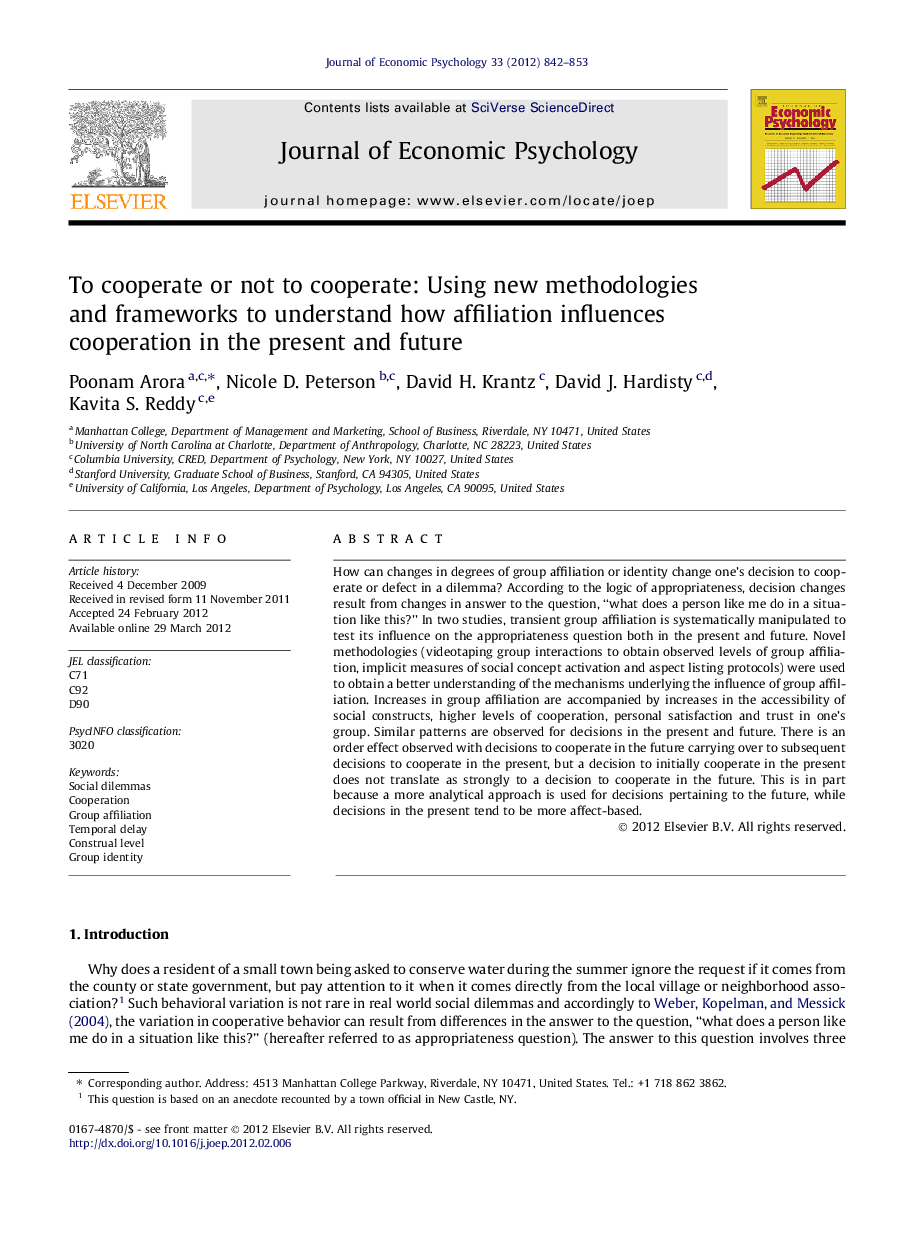| کد مقاله | کد نشریه | سال انتشار | مقاله انگلیسی | نسخه تمام متن |
|---|---|---|---|---|
| 885149 | 912661 | 2012 | 12 صفحه PDF | دانلود رایگان |

How can changes in degrees of group affiliation or identity change one’s decision to cooperate or defect in a dilemma? According to the logic of appropriateness, decision changes result from changes in answer to the question, “what does a person like me do in a situation like this?” In two studies, transient group affiliation is systematically manipulated to test its influence on the appropriateness question both in the present and future. Novel methodologies (videotaping group interactions to obtain observed levels of group affiliation, implicit measures of social concept activation and aspect listing protocols) were used to obtain a better understanding of the mechanisms underlying the influence of group affiliation. Increases in group affiliation are accompanied by increases in the accessibility of social constructs, higher levels of cooperation, personal satisfaction and trust in one’s group. Similar patterns are observed for decisions in the present and future. There is an order effect observed with decisions to cooperate in the future carrying over to subsequent decisions to cooperate in the present, but a decision to initially cooperate in the present does not translate as strongly to a decision to cooperate in the future. This is in part because a more analytical approach is used for decisions pertaining to the future, while decisions in the present tend to be more affect-based.
► Logic of appropriateness framework used to explain how affiliation increases cooperation.
► Novel methodologies used to examine mechanisms underlying group affiliation.
► Greater affiliation correlated with higher accessibility of social constructs.
► Cooperators exhibit higher levels of personal satisfaction and trust in group.
► Similar patterns observed for decisions in the present and future (6 months out).
Journal: Journal of Economic Psychology - Volume 33, Issue 4, August 2012, Pages 842–853